Description
Conure for sale
Conure for sale,conures are wonderful pet birds that are members of the parrot family. The word “conure” means cone tail. Small to medium sized conure parrots are found in the new world, throughout the central and southern regions of the Americas.
Conure parrots are distinguished by their slender bodies and tapered tails, rather than having the stockier bodies and more square-shaped tails found on larger parrots. These dynamic birds are full of energy, very attractive, and make wonderful pets. Conures are very intelligent, they are enjoyed for their delightful personalities, high energy, and comical antics. Being some of the most colorful and playful parrots, they are definitely one of the clowns of the parrot world.
Besides being very social and quite active, conures are easily tamed. These little parrots love to learn tricks. Most conures can learn a few words though their voices are high pitched. Consequently what they are saying is often unclear. They are hardy birds that rarely get sick.
Conures have all the great qualities of the larger parrots and in many ways are like miniature versions of the Macaws. They are delightful comics, acrobatic, very social, and having talents for mimicry. A Conure for sale is a good choice for those wanting to step up from a Budgie or Cockatiel but not quite ready for the commitment of a large parrot like a Macaw, African Grey, or Cockatoo.
Being very outgoing and social, a conure parrot will quickly adapt to its new environment and cage. Because they are smaller parrots, they require less space and are generally less expensive than large parrots. Depending on size, in a good environment they can live up to 15 years for a smaller conure parrot, or up to about 35 years for the larger.
Behavior of Conure (for sale)
Conures are very social, active, and outgoing birds. They adapt well to captivity and will adjust easily to their cage or aviary. They are intelligent little birds and are generally easy to tame. These parrots enjoy interaction with people and they also enjoy the companionship of other birds.
Conure parrots are very popular pet birds because of their incredible beauty and personable behaviors. What a joy it is to watch these active, playful creatures. Everything in their cage becomes an object for their pleasure, from pulling up the paper on the bottom of their cage to playing hide-and-seek under it. Then they’ll move on to rearranging their perches and toys.
In nature conures live in flocks or family groups and are very friendly and peaceful birds. They love attention and make wonderful pets, but can be very vocal. Although they can be noisy, they are highly intelligent and so are quick to learn tricks and to talk. Because of their social disposition, many can become finger tamed in just a few weeks. These birds are very hardy and will breed fairly easily in captivity.
Conures also do well when kept in pairs or groups. They live in colonies in the wild, but form monogamous pairs. Once a pair is harmonious, many types of conures will bond with their mate for life. A single bird can become restless or distressed without companionship, and may start demonstrating undesirable behaviors like feather plucking or become depressed. Keeping them with a companion can help avert such behaviors.
Care and Feeding
Conures are lively birds who require a large cage to walk about and store toys. A conure’s minimum cage size is 36 inches length, 24 inches wide, and 24 inches high. Conures in general enjoy bathing, whether in their water dish, in the shower with their owner, or in a spray bath.
A nutritionally balanced manufactured diet should be supplemented with fresh vegetables, fruit, and nutritious table items in the diet of a conure. Conures have busy beaks, thus Lafeber foods are a conure favorite. Avi-Cakes, Pellet-Berries, and Nutri-Berries from Lafeber provide balanced nourishment that appeals to a conure’s chewing demands. A well cared conure can survive for 20 to 30 years.
Temperament
Green-cheeked conures are widely kept as pets. They are friendly and playful, and they thrive on socialization with their owners. Green-cheeked conures, like other birds, can be snappy and uncooperative at times, but they are generally among the most laid-back of the conure species. Although most do not speak, green-cheeked conures respond well to teaching and are known to be quick learners. They can be taught simple tricks. Most entrepreneurs claim that their huge personalities compensate for their lack of communication skills.
Habitat
Habitat size,Provide the largest habitat possible for your Conure bird. The minimum habitat size for one green-cheek or similar-sized conure is approximately 24″ W x 24″ D x 30″ H, with metal bars spaced no more than 3/4″ apart. Commercially available habitats are generally made with stainless steel bars (either with or without nontoxic coating); homemade habitats and those made of wood or galvanized wire are not recommended because wood cannot be disinfected properly and birds can chew on their habitats and ingest potentially toxic chemicals.
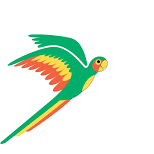
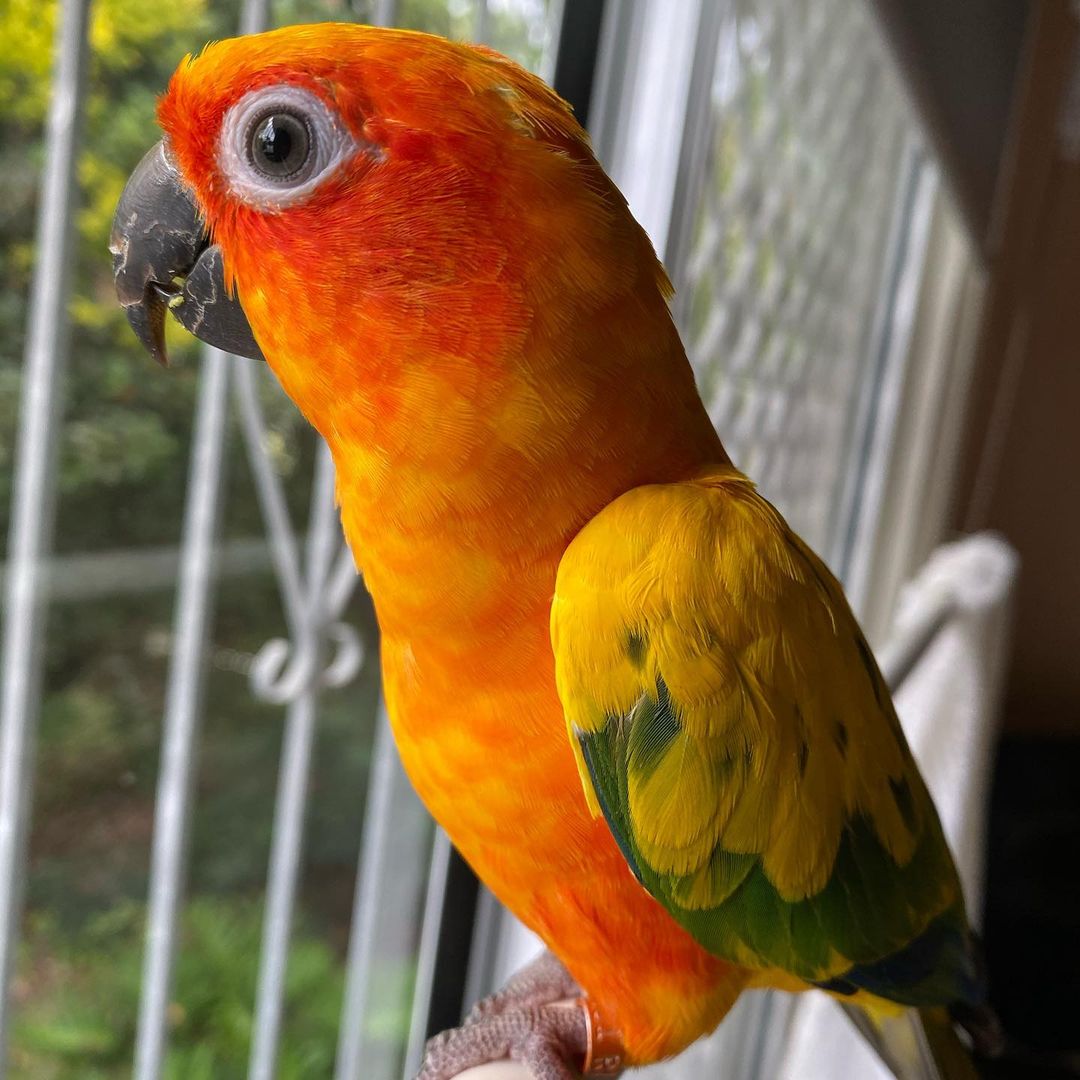
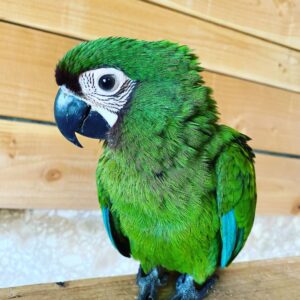
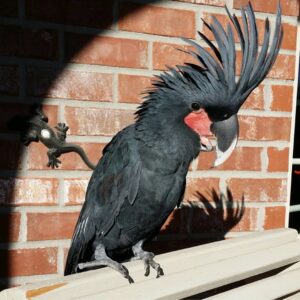
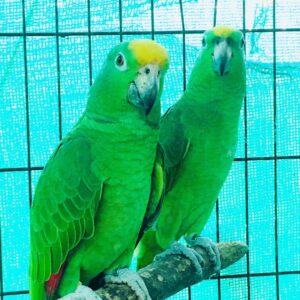
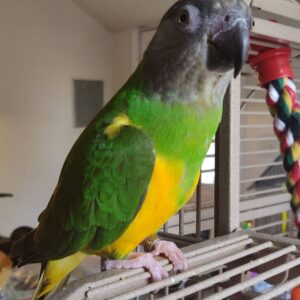
Reviews
There are no reviews yet.